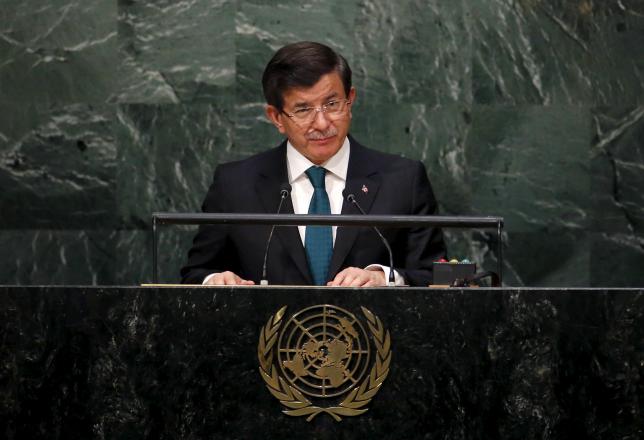Turkey's ruling AK Party promised a new constitution with a strong executive presidency in its manifesto unveiled on Sunday ahead of a Nov. 1 snap election.
The AKP, which has Islamist roots and has been in power for more than a decade, lost its parliamentary majority in a June election and many say its lobbying for an executive presidency was to blame for its setback.
"We support the presidential system to prevent the instability which is caused by the parliamentary system," Prime Minister Ahmet Davutoglu said, announcing the election manifesto in the capital Ankara.
Turkish President Tayyip Erdogan, a founder of the AKP and a strong advocate of the constitutional change, called the snap election following failed coalition negotiations this summer between the party and its rivals. Some opinion polls suggest the AKP will again fail to win a majority in November.
Political deadlock since the election, coupled with renewed conflict in southeast Turkey with Kurdish militants, has damaged the country's credibility in the eyes of investors, sending the lira currency to record lows against the U.S. dollar.
Erdogan, who as president is meant to stand above party politics, urged Turks on Sunday to back the AKP in order to ensure stability in the country and defeat the Kurdish militants.
"I ask you to turn out in big numbers to vote on Nov. 1. It is for you to eradicate terrorism on Nov. 1," Erdogan told Turks living in western Europe at a rally in the French city of Strasbourg. Some five million Turks live in western Europe.
The election manifesto unveiled by Davutoglu promised to raise the minimum wage to 1,300 lira ($434) a month, to increase the state pension and provide interest-free loans to small businessmen.
It also pledged to legally recognise 'cemevis', the places of worship for Turkey's Alevi religious minority, as its main rival, the opposition Republican People’s Party (CHP), has started to do in municipalities it governs.
The European Court of Human Rights ruled last year that Turkey's failure to legalise the Alevis' places of worship constituted religious discrimination.
(Reuters)
www.ann.az
Follow us !











